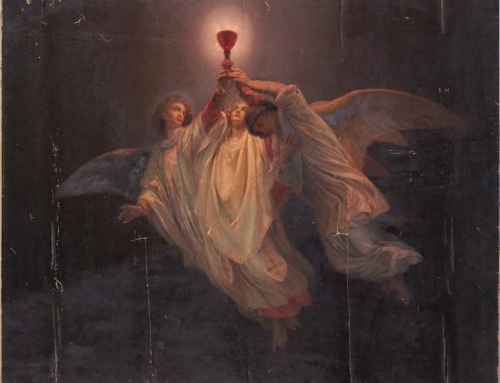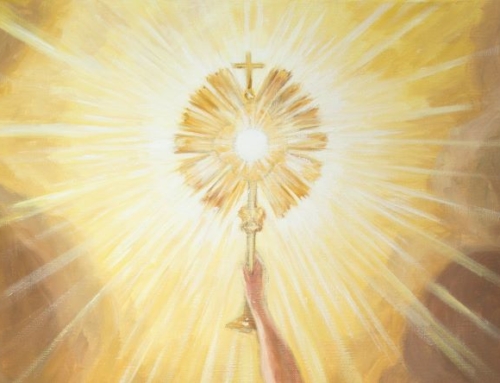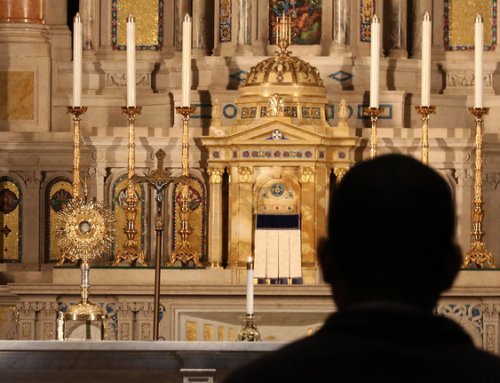Let’s say that some friends invite you over to dinner, so that you can meet Ms. Aberdeen Abels, a self-made entrepreneur and prominent business tycoon. Not only is this dinner an opportunity to further your social influence and build that all-important network of relationships, it also has the making of that “big break” you and your partners at the firm have so long desired.
Simply put, Aberdeen is looking to buy, and you are eager to sell. If you play your cards right, if she decides to invest in your company, your future (and your children’s future, and their children’s future) is financially secure. But if you “drop the ball,” if you squander this opportunity, if you leave without an offer, you jeopardize your career. For all intents and purposes, you are about to appear on Shark Tank, and the interested party is Kevin O’Leary.
Around lunchtime, several hours before you’re expected to arrive at their apartment, you compose a brief but heartfelt text message to your friends, Ian and Eilis.
Hey guys, thanks again for inviting me over for dinner tonight. I’m so excited to meet Aberdeen! I know that nothing may come of it, but I’m really grateful for this opportunity. As you well know, opportunities such as these are hard to come by! I hope that I can make it up to you guys at some point. Please let me know if I can ever return the favor! Love you both!
You press SEND. The text wasn’t perfect, but it’s sufficient for now. Something needed to be said—again. After all, Ian and Eilis arranged the meeting on your behalf. They have nothing to gain: your friends are successful businessmen in their own right, and well-known philanthropists to boot. You, on the other hand, have everything to lose: your business is faltering, and it needs someone with the tested acumen and fat wallet of Aberdeen to set it aright.
You arrive at their house shortly before eight o’clock, just in time for the hors d’oeuvres. At one o’clock, precisely five hours after your arrival and two hours before your departure, you haven’t stopped smiling, there being nothing that you could say or do that didn’t interest the guest of honor.
Toward morning the conversation takes a turn toward religion and Aberdeen, upon learning that you are Catholic, begins to talk about the Church. She calls the celibate priesthood “old-fashioned” but “commendable,” given the natural “desire of man” to “make babies.” She also mentions the Eucharist and her particular fondness for the “symbolism” at work in the sacrament, even going so far as to call it “a pretty good symbol” for Jesus’ message of “peace and justice.”
At this last remark, you pause, not yet knowing how to respond, if to respond, or when to respond.
The Eucharist is not just a symbol.
You look at Aberdeen. She smiles back, oblivious. She continues her commentary with something about Pope Francis and why she “absolutely adore[s] him.” You don’t say anything, and the moment passes.
When you leave the apartment at half past three, you feel somewhat sick, not because of anything you ate or drank, but because you punted on the opportunity of a lifetime. To be clear, you leave with a handshake deal (a gentleman’s agreement) in place. Aberdeen is on board. But you still feel as though you left something on the table, something unsaid.
You’re not going to sleep anytime soon, so you open up your laptop and casually browse the web. After perusing a number of sites, some more meaningful than others, you put your laptop aside and pour yourself a glass of wine. You admire its red hue and the intriguing bouquet of honeysuckle and jasmine.
The Eucharist is not just a symbol.
You know this and know it well.
The Eucharist is not just a symbol.
You finish your glass and walk to the sink.
The Eucharist is not just a symbol.
You think of Aberdeen and your missed opportunity.
✠
Photo by Daniele Buso on Unsplash







